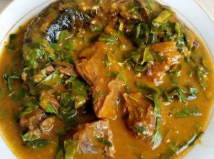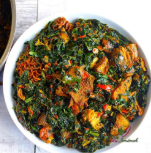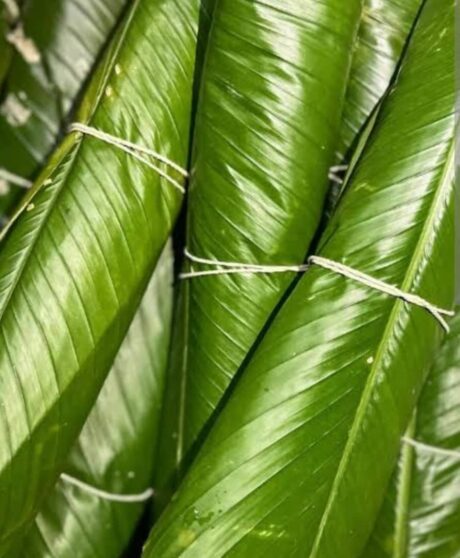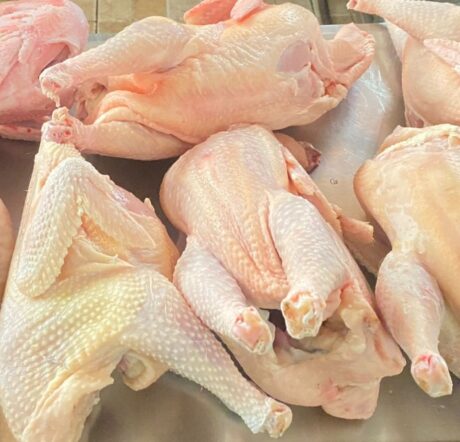Oha – per pack (Subscriber price only)
Oha (Pterocarpus mildbraedii) is a unique leafy vegetable native to southeastern Nigeria. Known for its slightly bitter-sweet and earthy taste, Oha leaves are tender and delicate, making them perfect for soups. The leaves are usually torn by hand rather than cut, as chopping can make them turn dark and alter the flavor. Oha is a seasonal vegetable, and its fresh leaves are highly sought after when in season.
Sources
Enugu, Imo, and Abia
Health Benefits
-
Rich in iron, which helps in the formation of healthy red blood cells.
-
Contains calcium and magnesium for strong bones and teeth.
-
Supports digestion and helps maintain healthy metabolism.
-
Boosts the immune system with its natural antioxidants.
-
Promotes skin health with its vitamin content.
Common soups or dishes you can use it for
-
Oha soup (traditionally made with cocoyam paste and palm oil)
-
Mixed vegetable soups
-
Oha with egusi (melon seed) soup
-
Oha and achara soup (popular in some eastern communities)
TETE (Local Green Spinach) – per pack (Subscriber price only)
Description
Tete, also called African spinach or amaranth leaves, is native to Africa and Asia. It has been cultivated in Nigeria for centuries and is a staple green vegetable in many traditional dishes.
Sources
Oyo, Ogun
Health benefits
-
Rich in iron – helps prevent anemia and boost energy.
-
High in vitamins A and C – supports vision, immunity, and healthy skin.
-
Good source of dietary fiber – aids digestion and supports gut health.
-
Contains calcium – important for strong bones and teeth.
-
Low in calories – great for weight management.
Common soups you can use it for
-
Efo Riro (Yoruba vegetable stew)
-
Efo Elegusi (vegetable with melon seed soup)
-
Ogbono Soup (as an added leafy green)
-
Okra Soup
-
Mixed Vegetable Stew
Bulk Bitterleaf per pack (Subscriber price only)
Wholesale Organic Dried Bitter Leaves for Culinary and Herbal Use
Min Order : 1000kg
MoinMoin Leaves – per pack -(Subscriber price only)
Description
Moi Moi leaf comes from the plant Thaumatococcus daniellii, known for its broad, flexible, and aromatic leaves. These leaves are not eaten but are used as natural wrappers for steaming dishes like Moi Moi (bean pudding) and some local rice delicacies. Cooking with Moi Moi leaves gives food a distinct earthy aroma and flavor compared to using nylon or foil.
Sources
Oyo, Ogun, Ondo, and Ekiti, as well as parts of the South-South.
Health benefits (indirect — since the leaves are not consumed directly)
-
Adds a natural aroma to food without artificial flavoring.
-
Eco-friendly and biodegradable compared to synthetic wraps.
-
Helps retain food nutrients during steaming due to its natural sealing effect.
-
The plant itself has medicinal uses in traditional medicine (e.g., the fruits are used as natural sweeteners).
Common soups or dishes you can use it for
-
Moi Moi (bean pudding)
-
Ekuru (steamed mashed beans)
-
Some local steamed rice dishes











